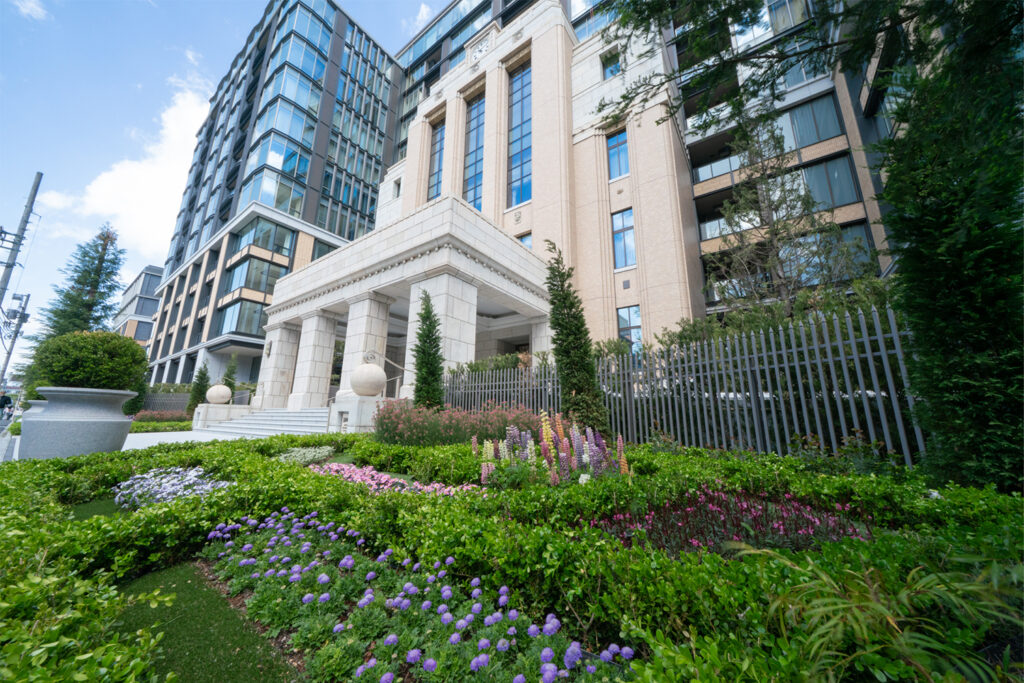
International property investors face the same challenges when it comes to generating profits from their real estate assets abroad. And chief among these is finding a reliable and trustworthy property management service to make sure the process goes as smoothly as possible, especially when you’re looking at somewhere like Japan, which comes with its own set of unique quirks and challenges.
In this guide, we look at key considerations for residential real estate investors looking to profit from the Japanese market. With some industry best practices and tips for property management and a particular focus on how to rent out your property as part of your investment strategy, we’ll help prepare you for finding a trustworthy property management service you can lean on while you’re expanding your property portfolio in Japan.
Tokyo Property Management — What to Look For
Property dealings, especially those in a foreign country to your own, are often complex and require knowledge, experience, and careful due diligence. There are many key factors that contribute to successful property management that need to be understood and applied effectively to succeed in a competitive real estate market like Tokyo.
Overview of Property Management in Tokyo
Similar to other markets in the world, buying and renting out residential property in Japan requires a number of moving parts to line up, including:
- Effective marketing of the unit (advertising to potential tenants)
- Setting proper rent rates (with consideration of market trends)
- Acceptable tenant contract agreements
- An efficient rent collection process
- Suitable cancellation and renewals procedures
- Ongoing tenant management procedures (repairs, tenant inquiries, etc.)
- Cooperation with facility management
On top of that, one of the most important factors in the efficient management of properties and tenants in Tokyo is having a command of the Japanese language, which is absolutely necessary. Even if you live in the country and can be on-hand to perform certain landlord or management duties, a number of tasks will simply be too complicated if you’re not able to communicate fluently in Japanese.
Therefore, and not surprisingly, most foreign and domestic property owners in Tokyo decided to use the services of professional property managers that act as a proxy between tenants and owners.
This service, if performed correctly, should save a great deal of time, stress and money by taking care of all property management process steps that might otherwise be difficult without local language skills, from property listing and marketing, right through to rental contracts, rent collection and reporting on ROI performance.
We’ll cover more about how to find a good property management agency in Japan throughout the blog, but feel free to browse our Tokyo property and real estate management services now to find out how we can help you make the most out of your property.
Marketing Tokyo Property to Tenants

Properties, just like any other product or service, can be advertised through a variety of channels including real estate magazines, online blogs, social media, TV, radio and so on. While yielding varying results, most of these approaches require significant investment with a low chance of generating high-quality leads — meaning you will reach fewer people who are actually interested in renting. Generally, this process is too time-consuming and cost-ineffective for most property owners.
Marketing a property for rent is not about casting a wide net and reaching the masses, but targeting specific groups who are more highly likely to be interested
Effective property marketing is much more about being targeted and deliberate about the advertising activities you choose, using the right channels and messages to reach groups of people who are currently in the market for a property rental. This is where property management services can really show their value.
As property managers have access to a much greater number of marketing tools and channels dedicated to reaching potential tenants, as well as existing online listing platforms that usually have a strong online presence, they’re a great resource for anyone looking to market their property efficiently — and something that private investors simply don’t have the same access to.
Property management best practices for effectively marketing a property in Tokyo:
- Promote the property on high traffic Tokyo property management and listings websites with a pre-existing audience base of people looking to rent a property
- Market directly to a qualified list of existing and past tenants using a robust database or email marketing newsletter approach
- Leverage the national Real Estate Information Network Systems (REINS) — a leasing information database only accessible by licensed realtors
- Utilise available nationwide Japanese property listing sites (public or third party)
As you can see, existing property managers operating in Tokyo will have the advantage over private investors working alone when it comes to delivering on most of these factors, making your choice of a reliable and well-placed agency a large bonus when handling property assets in the Japanese market.
Closing Rental Contracts with Tenants

Completing a property rental agreement requires a number of important steps, including arranging viewings, receiving applications, reviewing potential renter candidates, and answering relevant questions regarding the property. These are all things that a Japanese real estate broker or management agency will be more equipped with handling, being able to draw on their network of brokers and facilitators to process the transaction and get the documentation signed.
Japanese real estate companies are well-placed to handle property rental activities like viewing arrangements, tenant vetting and completing contract documentation.
In Japan, guarantors are common practice for tenants. This guarantees the property owner that the rent will always be paid, even if a tenant isn’t able to fulfil their financial obligations themselves. Some common property guarantor examples are:
- Parents are often guarantors for their adolescent children
- Companies can assume the role of a guarantor for their employees
- Guarantor companies can be used in some cases
The most common rental contract length in Japan is two years. There is usually no limit on the number of times a contract can be renewed; however, tenants who wish to stay in their property will typically have to pay a renewal fee unless stated otherwise. This can range from between one and two month’s rent. And in terms of cancellation, most contracts can be discontinued a month’s notice.
When signing the property contract, tenants are usually required to pay:
- First month’s rent
- Reikin (translated literally as ‘gratitude money’) which is a mandatory payment to the landlord equivalent to one or two month’s rent
- Shikikin (deposit) — usually in the same amount as reikin
Also, foreign tenants renting in Tokyo are typically required to have access to certain Japanese accounts and documentation, such as a local bank account and a phone number.
Ordinary and Fixed-Term Leases
| Ordinary Lease Contract | Fixed-term Contract | |
| Duration | 2 Years | Defined in the contract (usually shorter than 2 years) |
| Renewal | Indefinitely | |
| Rental Income | Higher | Lower |
Two common kinds of residential lease contracts in Japan are ordinary lease contracts and fixed-term contracts.
Ordinary lease contracts are the most common type with a standard duration of 2 years that can be renewed indefinitely. This means a tenant can be evicted only under special circumstances like consistent late payments or when not following the property guidelines outlined by the owner.
Ordinary lease contracts restrict the flexibility of the owner, in cases such as changing tenancy or using the property for themselves in the future but allow for higher rents. This is the option preferred by renters in Japan because it offers more stability.
Fixed-term property leases offer more flexibility for owners who may want to move back into the property in the future.
Owners of properties in Japan who only want to occasionally rent out their property and later use it themselves, often prefer the fixed-term leasing type of contract. This contract is set to a pre-defined duration and does not include an option for renewal. With shorter fixed-term contracts, the monthly rental income is usually lower compared to ordinary leases.
One solution that can yield both high rental returns and provide owners with flexibility at the same time, is short-term property management. This option allows investors to rent their property out on a short-term ‘flexible’ tenant market, benefiting from higher yields without a large time commitment.
An additional benefit of this for owners is that they can use the property themselves when it is available, which can be arranged with reasonable short-notice due to the fact that there are no long-term tenant contracts in place.
Tokyo Property Management — Financial Aspects

The next important step in effective property management is setting the rent and ultimately creating a stable income stream. The actual monthly rent in Tokyo will significantly vary depending on the standard of the property, size (in square meters), proximity to nearby subway stations, age, and so on.
Here is a quick glimpse into the local property rental market in Tokyo:
- In 8 out of 23 of Tokyo’s wards, the total population is projected to increase by over 25% in the next 25 years, making vacancy risk low.
- Hundreds of new development projects are coming to the market yearly, increasing the diversity potential of property investments.
- The Global Property Guide highlights that gross rental yields earned on residential property in Tokyo’s central districts range from 3.4% to 5.4%.
Our best tip for setting up a reasonable rental rate that balances a high return for low vacancy risk is to look at similar properties on the market to evaluate average rent levels. Having this in mind as you navigate investment options offers you better potential to capitalize on the steadily growing rental yields throughout the whole city, not only just in Tokyo’s central wards.
Property Management Fee Schedules
Property management services should create and protect a stable income stream for owners.
To ensure that your Tokyo property management service is able to facilitate your investment process and support a reliable revenue stream, it is important to review the two types of fee schedules offered by most property managers in Japan, which are:
- Rental guarantee fee plan
- Pass-through (non-rental guarantee) fee plan
For foreigners owning a property in Japan that want to manage their asset while being overseas, the best and most hands-off approach is to have a rental guarantee fee agreement with the property manager. Under this plan, the property manager will calculate a guaranteed amount (based on market research and rental rates of comparable properties) and pay a certain percentage to the owner each month, regardless of varying factors like vacancies. This option is suitable for low-risk investors that are looking for a guaranteed income stream. The downside is usually a much lower rate of return on your investment as the property manager needs to assume the risk.
On the other hand, with a pass-through fee plan, the property manager will only take a percentage of the rental income when the property is occupied. With this approach, owners are usually able to secure higher rental incomes as they will have greater access to the total average monthly rent rates. The downside is that you can risk losing out when faced with longer vacancies.
Housing Japan’s property management services are based upon a pass-through fee plan. Learn More About Our Property Management Services
Tax, Financial Reporting, and Insurance
Property managers should always provide periodic reports to the property owner. These reports should include any relevant tax documentation; monthly or at least quarterly cash-flow financial reports (to help maximize the return on investment); end-of-year financial reports, and any other legal and informational documents to keep the owner updated about the property value and returns. Most property managers will also do all the necessary taxes for the owner, including the withholding tax.
Also, because of frequent earthquakes and other natural disasters, proper real estate insurance is a must in Japan. Often property managers will have a reputable property insurance company in their network and can recommend them to the owner to secure all the necessary policies.
If you are concerned about the safety of your investment, we’ve prepared an entire article comparing Japan to other Asian countries in terms of real estate investment safety: Real Estate Investing in Japan: Safest in Asia.
Choosing Your Tokyo Property Manager

For peace of mind, hands-off management, and good rental yields, an experienced and trustworthy property manager is necessary. While we’ve done our best to summarise in this article some of the most pressing points for potential investors sizing up the Japanese property market, we’ve outlined some final tips and recommendations for anyone looking for their next property manager in Tokyo:
- Only choose licensed property managers. Unlike real estate brokers, property managers in Japan are not required to be licensed. To cover all your bases, we would recommend sticking with licensed agents as this is usually a good measure of knowledge and experience.
- Be aware of standard property management service fees, including:
- An average of 5-10% of the gross rent
- One month’s worth of rent to find a tenant
- Half the tenant renewal fee
- Make sure your property manager helps you save on the most important asset: time
- Check if your property manager will be able to transfer your rental revenue to overseas bank accounts.
- Choose a property manager that is known for offering a high standard of customer service when it comes to things like communicating with renters and arranging repairs.
- Make sure you will be able to receive periodical reports in your preferred language about your property and revenue flow, to ensure you are getting the best returns on investment over time.
Use the above as a checklist and you’ll have a good chance of finding the ideal property manager in Tokyo.
Finally, if you’re looking for a property management service that is fully tailored to overseas landlords who own a property in Tokyo, Housing Japan offers industry-leading support and advice on all things property -related. This includes helping homeowners and investors lease out single units or whole buildings, as well as handling properties in Japan’s long or short-term tenant market.











